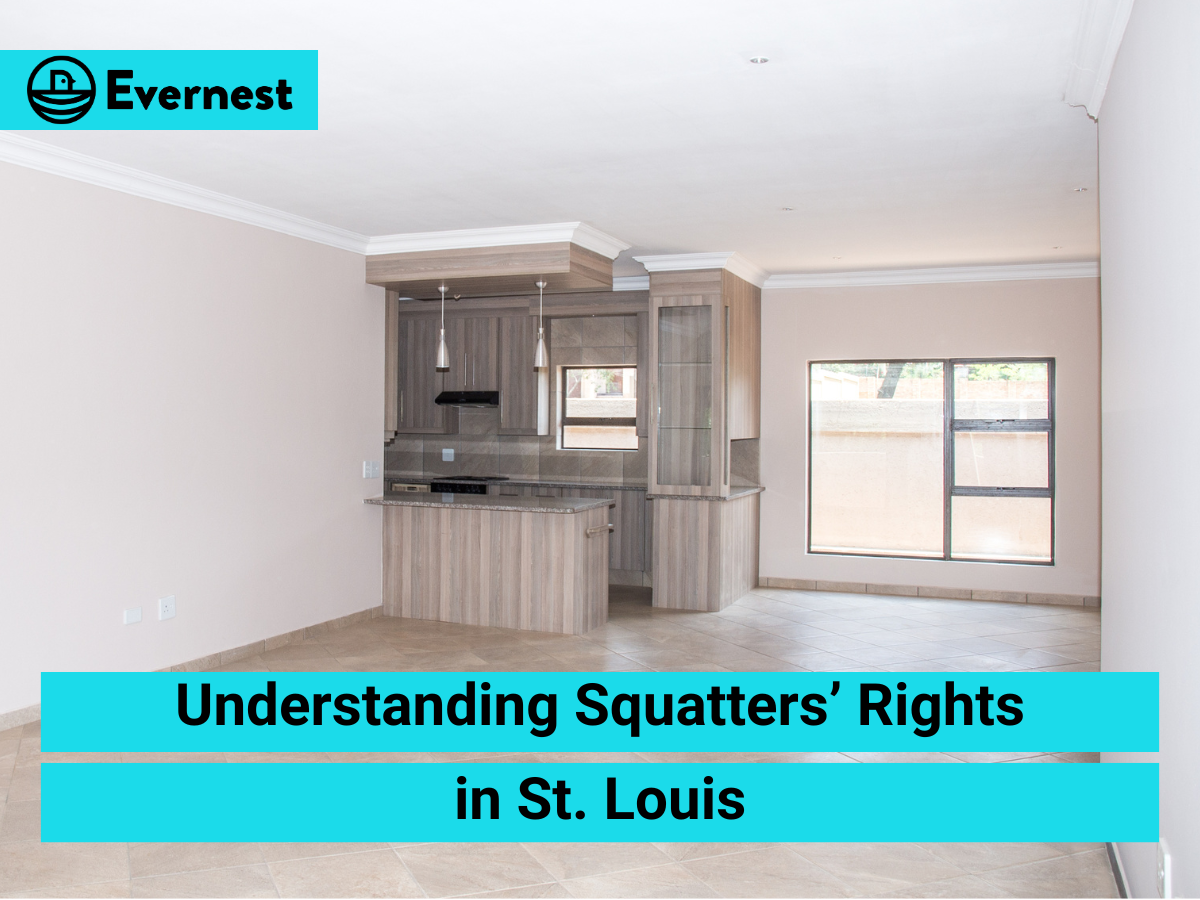Squatters' rights is a complex issue that has been debated and discussed in cities all over the United States, and St. Louis is no exception. For property owners, it is important to understand the legal definition of squatting and the rights and protections that both property owners and squatters have in St. Louis.
In this article, we will examine the legal aspects of squatting in St. Louis, including the difference between trespassing and squatting, the process of adverse possession, and the rights of property owners. We will also explore how to prevent squatting, the legal recourse available to property owners, and the process of eviction for squatters.
Disclaimer: The information provided in this blog does not, and is not intended to, constitute legal advice; instead, all information, content, and materials available in this blog are for general informational purposes only.
The Legal Definition of Squatting
Squatting is the act of residing on a property without the owner's permission or legal right. Squatting differs from trespassing in that squatters will occupy the property for an extended period, usually with the intention of establishing residence there. In St. Louis, squatting is typically considered a civil matter rather than a criminal offense.
The History of Squatting Laws in Missouri
The history of squatting laws in Missouri dates back to the early days of westward expansion in the United States. In the 19th century, as settlers moved west and explored new territories, there was a lack of clear property rights and legal ownership. This led to the establishment of squatting laws, which aimed to provide a legal framework for individuals to obtain ownership of land through occupancy and improvement. Out of this framework, the concept of adverse possession was born.
Over time, squatting laws have evolved to strike a balance between protecting property owners and recognizing the rights of squatters. In St. Louis, these laws have been shaped by Missouri state statutes and court decisions.
The Difference Between Trespassing and Squatting
While trespassing and squatting may seem similar, there are distinct legal differences between the two. Trespassing refers to the act of entering or remaining on someone else's property without permission. It is a criminal offense and can result in immediate removal from the property, fines, and even imprisonment.
Squatting, on the other hand, involves residing in a property without the owner's permission for an extended period of time. Though illegal, squatting is a civil rather than criminal matter. Under certain circumstances, squatters may also be able to make a legitimate claim to the property based on adverse possession.
The Process of Adverse Possession in Missouri
Adverse possession is a legal concept that allows someone who is in possession of another person's property to potentially claim ownership after a certain period of time. In Missouri, the requirements for adverse possession include:
Actual possession of the property
Open and notorious use of the property
Exclusive use of the property
Continuous use of the property for a specified period of time (usually 10 or 15 years)
Payment of property taxes
If these requirements are met, the squatter may be able to file a legal claim for adverse possession, which could result in them gaining legal ownership of the property.
Requirements for Adverse Possession
To successfully claim adverse possession in Missouri, the squatter must meet several requirements:
Actual possession: The squatter must physically occupy and use the property.
Open and notorious use: The squatter's occupancy and use of the property must be obvious and visible to others.
Exclusive use: The squatter must have exclusive control and use of the property, excluding the owner and any others.
Continuous use: The squatter must continuously occupy and use the property for the required period of time, without interruption.
Payment of property taxes: The squatter must fulfill their obligation of paying taxes on the property.
The Legal Procedure for Claiming Adverse Possession
If a squatter believes they meet the requirements for adverse possession in St. Louis, they can file a lawsuit to claim legal ownership of the property. The legal procedure for claiming adverse possession can be complex and requires evidence that the requirements for adverse possession have been met.
The property owner will also have the opportunity to present their case and challenge the squatter's claim. It is crucial for property owners to consult with an attorney when faced with a potential adverse possession claim to ensure their rights are protected.
The Rights of Property Owners
Property owners in St. Louis have rights and legal protections when it comes to dealing with squatters on their property. If a property owner discovers someone residing on their property without permission, they have the right to:
Request the squatter to vacate the property
Notify law enforcement and request assistance in removing the squatter
Take legal action to evict the squatter
How to Prevent Squatting
Preventing squatting starts with taking proactive measures to protect your property. Here are some steps property owners can take to reduce the risk of squatters:
Regularly inspect your property to ensure it is secure and there are no signs of occupation.
Secure all entrances, windows, and other access points to prevent unauthorized entry.
Install security systems and surveillance cameras to deter trespassers and squatters.
Maintain clear and consistent communication with tenants and neighbors to stay informed about any potential issues.
Consider hiring a property management company to oversee the maintenance and security of your property.
By implementing these preventative measures, property owners can significantly reduce the risk of squatting on their properties.
Legal Recourse for Property Owners
If a property owner discovers a squatter on their property, they should take immediate action to protect their rights. Some legal recourse options for property owners in St. Louis include:
Sending a formal written notice to the squatter demanding they vacate the property within a specified period of time.
Filing a lawsuit for unlawful detainer or eviction to have the squatter legally removed from the property.
Seeking an injunction to prevent the squatter from continuing to occupy the property.
Working with local law enforcement and the court system to ensure the squatter is lawfully removed.
It is important for property owners to consult with either a property management company skilled in handling evictions or retaining legal counsel to navigate the legal process and protect their rights.
Squatters’ Rights in St. Louis
Despite the legal protections available to property owners, squatters in St. Louis may also have certain rights and legal protections depending on the circumstances.
Legal Protections for Squatters
In some cases, squatters in St. Louis may be protected by certain legal provisions. For example, if a squatter has occupied a property for an extended period of time and made substantial improvements to it, they may potentially have a basis for claiming adverse possession.
However, it is important to note that the legal protections for squatters are limited, and the burden of proof falls on the squatter to demonstrate that they meet the requirements for adverse possession. Squatters who are in vulnerable positions should seek assistance in procuring affordable housing.
The Process of Eviction for Squatters
If a property owner wishes to evict a squatter from their property, they must follow the appropriate legal process. In St. Louis, the process of eviction for squatters is similar to that of evicting a tenant. It typically involves:
Serving the squatter with a written notice to vacate the property.
Filing a lawsuit for unlawful detainer or eviction if the squatter fails to comply with the notice.
Attending a court hearing to present evidence and argue the case for eviction.
If the court rules in favor of the property owner, obtaining a court order for the squatter's removal.
Working with law enforcement to enforce the court order and ensure the squatter is lawfully removed from the property.
Final Thoughts: Squatters’ Rights in St. Louis
Understanding squatters' rights in St. Louis is essential for property owners looking to invest in real estate in the city. While the legal landscape surrounding squatting and adverse possession may be complex, consulting with experienced professionals can provide clarity and guidance. For property owners, proactive measures such as regular property inspections, strong security measures, and seeking legal assistance when necessary can help prevent squatting and protect their rights.
Looking for a Property Management Company in St. Louis?
If you own property in St. Louis and are looking for comprehensive property management services, contact our local team. We offer professional property management services tailored to the unique needs of property owners in St. Louis


